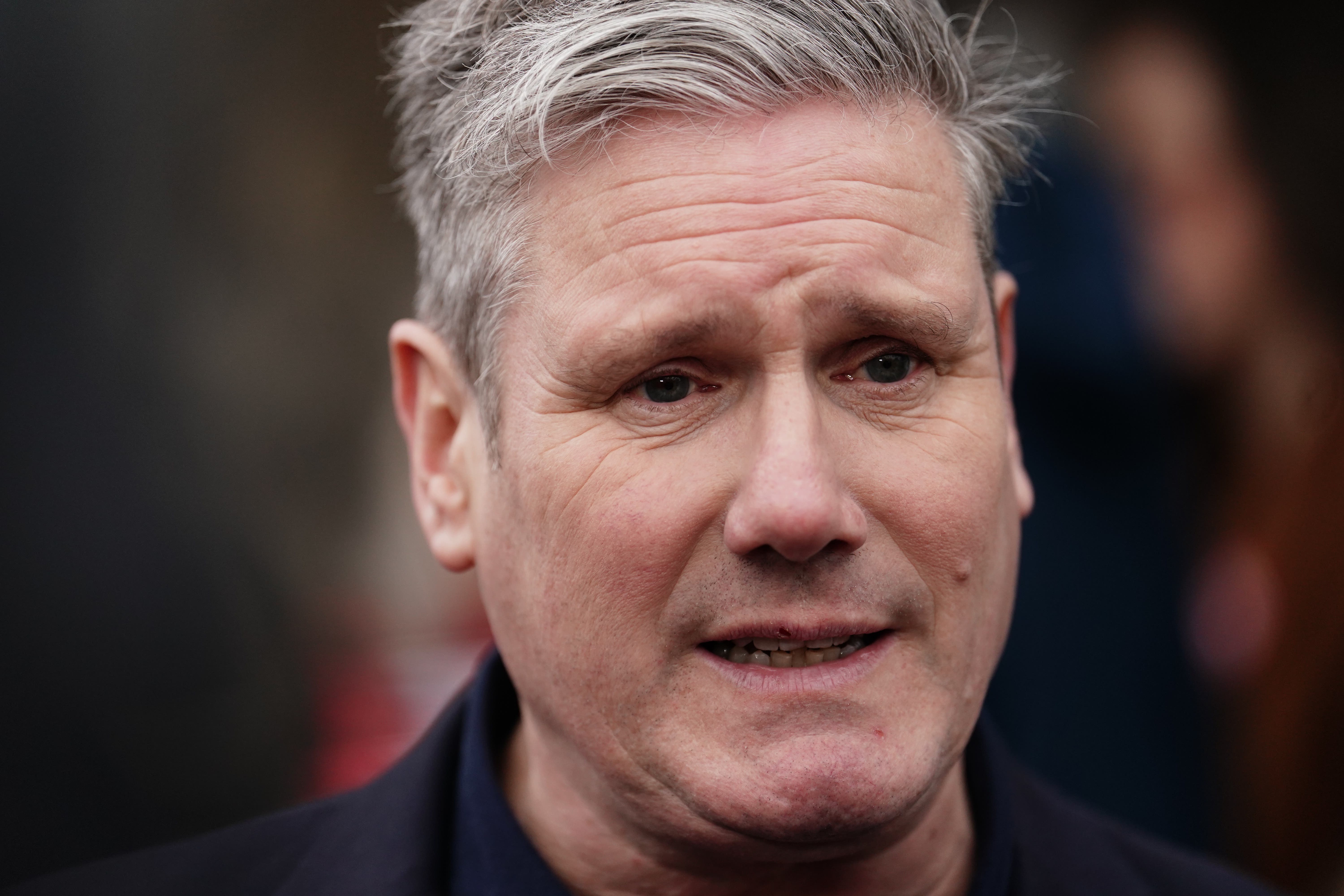Keir Starmer is not being honest. It’s time to explain why we won’t be rejoining the EU
The Labour leader says Britain’s future is outside of Europe, but that’s not what his party believes, writes John Rentoul


The Labour leader is shockingly blunt in an article written for a Eurosceptic newspaper today: “Britain’s future is outside the EU.” He hasn’t said it quite so categorically before. Previously, he tended to say that “there is no case for” rejoining the EU, which always allowed the possibility that there might be a case for it at a later date.
Now he has ruled it out indefinitely. Which will puzzle much of his party. As the British people continue to move ever more emphatically towards the view that the vote to leave the EU was a mistake, the Labour leader seems to be going in the opposite direction.
Many in the party will understand what he is up to, even if they do not like it much. The crude calculation is that Rejoiners have nowhere else to go at the election, whereas Leavers – especially those who voted Conservative for the first time in 2019 – could easily be persuaded to vote Tory again.
Yes, Rejoiners could go Lib Dem, Green or nationalist, but Keir Starmer actually wants to encourage voters in many southern Tory seats to vote Lib Dem. The Tories lose most seats if a swing to Labour is accompanied by a Lib Dem surge.
So Starmer’s focus is solely on convincing Leavers that he doesn’t want to reverse Brexit. Thus he used his article to block more tightly some of the possible loopholes that might allow the Conservatives to accuse him of harbouring the intention to backslide. Britain’s future, he went on, is “not in the single market, not in the customs union, not with a return to freedom of movement. Those arguments are in the past, where they belong.”
Thus he has adopted a position that is more Brexity than that of Theresa May, whose compromise Brexit deal, which Labour should have voted for at the time, meant keeping Britain in the EU customs union – temporarily, in theory.
That means that when the five-yearly review of the Brexit trade deal comes up in 2025, in the first year of a possible Labour government, Starmer is committed to tinkering with the terms of the deal itself rather than negotiating a new one.
If Labour’s strategy is based on Leave voters, this makes sense. But there is an obvious problem with it. Starmer says: “Express readers deserve their politicians to be clear about where they stand.” He is clear about what his position is now, but he was clear at the last election that his policy was the direct opposite.
“It’s no great secret that I voted Remain,” Starmer acknowledges in the article. “But as I went round the country, I found plenty to agree with Leave voters about.” They wanted a better health service, better jobs, and a “sense of control over their lives”. That is all interesting and a commendable attempt to seek common ground, but it does not explain why Starmer has changed his mind.
The inference that any Express reader is entitled to draw, therefore, is that he hasn’t changed, and that he is adopting an insincere position for the sake of the forthcoming election campaign.
Perhaps that is the best that he and the Labour Party can do. It seems to me that there are only really two other approaches that Starmer could adopt. One would be a fundamental change of strategy: to argue for a closer trading relationship with the EU, and say that rejoining the EU might be a (distant) possibility. This is more or less the Liberal Democrats’ position. It is what most Labour people privately want, and is a position for which they could argue from the heart. But the electoral arithmetic is questionable.
The other course would be to try to explain Labour’s change of policy without invoking electoral necessity. This would, I think, take Starmer into the territory explored by Neil Kinnock in the 1987-92 parliament, when he gave up the policy of one-sided nuclear disarmament, which was fundamentally unpopular.
Instead of doing what Starmer is now doing on Europe, merely asserting the new policy as a fact, Kinnock argued that the world was changing, and that “there is now no need for something-for-nothing unilateralism”. It was manifestly unconvincing. Even when the Berlin Wall fell in 1990, it wasn’t obvious that this strengthened the case for Britain keeping nuclear weapons.
Starmer could argue, I suppose, that circumstances have changed – namely that Britain has now left the EU, and it would be complicated and difficult to get back in on anything like the same exceptional terms. But that wouldn’t alter the fundamental belief of most Labour people that Britain would be better off in.
So Starmer is reduced to bald assertion without any supporting evidence: “Britain’s future is outside the EU.” In the next paragraph, he goes on to say that Express readers “also expect politicians to be honest”. This is meant to be the linking thought to the next bit, “There is no point pretending everything is working fine,” which introduces a section on Labour’s plans to “make Brexit work” (a little bit better, at the margins).
But the boast of honesty unfortunately draws attention to the fundamental problem with Labour’s post-Brexit policy, which is that neither Starmer nor his party believe in it. It may be the least bad position to adopt for electoral reasons, but honest it is not.
Join our commenting forum
Join thought-provoking conversations, follow other Independent readers and see their replies
Comments


Bookmark popover
Removed from bookmarks